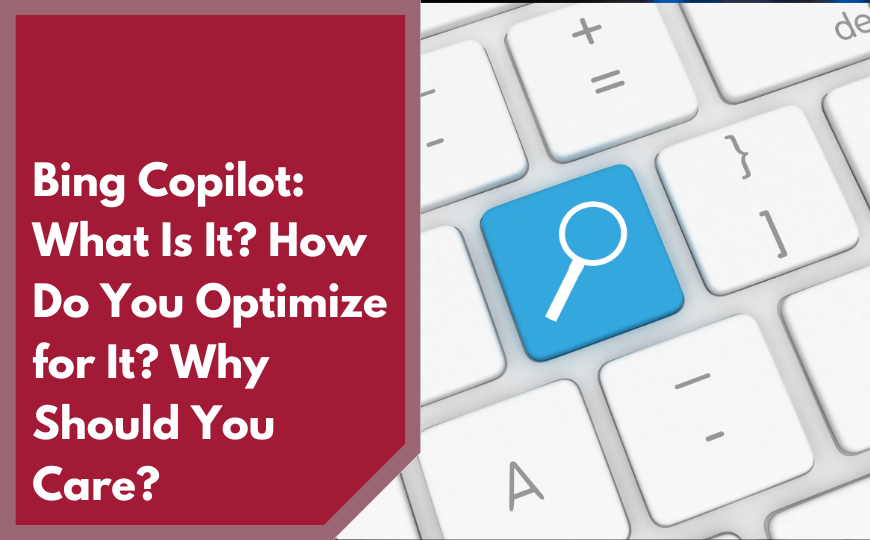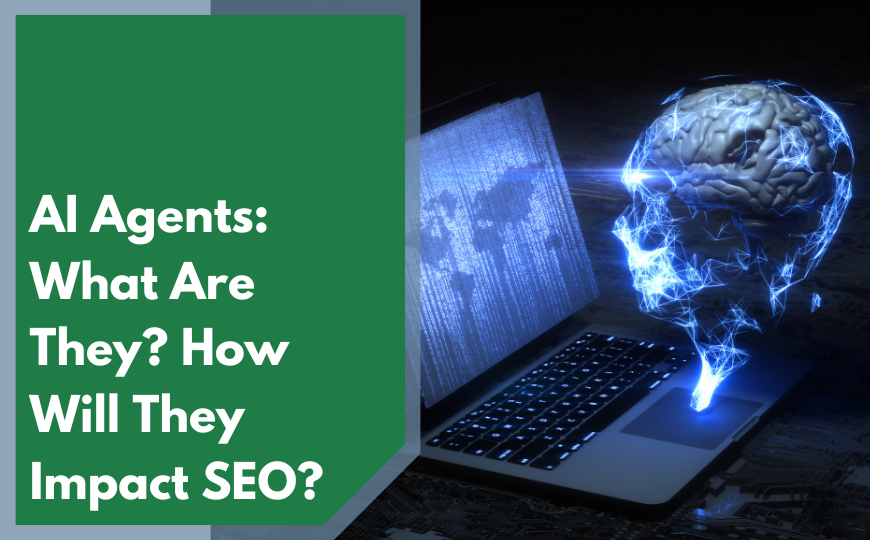Bing Copilot is Microsoft’s generative AI assistant that enhances Bing search results with conversational summaries and integrates across Microsoft 365 and Edge to deliver AI-powered insights. Unlike traditional search engines that rely on simple keyword matching, Bing Copilot leverages AI-powered content summarization, contextual understanding, and entity-based SEO to generate results that are more precise and user-centric.
For your business, this shift means that optimizing for Bing Copilot is critical. Companies that fail to adjust their SEO strategies will see reduced visibility, while those that embrace AI-powered search will gain a competitive advantage. In this article, let’s explore how Bing Copilot retrieves and presents information to understand how your business can remain relevant in an AI-first search landscape.1
How Does Bing Copilot Work?
Bing Copilot uses AI models to analyze search queries and deliver responses that go beyond traditional blue-link results. It synthesizes data from multiple sources to generate AI-powered summaries, extracting key insights and presenting them in a user-friendly format. Unlike conventional search engines, which rank pages solely based on backlinks and keyword relevance, Bing Copilot evaluates semantic relationships, structured data, and user engagement metrics to determine content quality.
Microsoft has integrated Bing Copilot into its suite of tools, including Microsoft Edge, Office 365, and Windows AI-powered experiences, making it a significant part of the digital workplace. This means that when your business optimizes for Bing Copilot, you will have a greater opportunity to reach users across multiple platforms beyond traditional web search.
For enterprise users, Bing Copilot can access internal business data when integrated with Microsoft 365 tools like SharePoint, Outlook, and Teams—if organizational permissions allow. By integrating your data into Microsoft’s ecosystem, your visibility will be enhanced and your information will be accessible through AI-powered recommendations.
How to Optimize for Bing Copilot
1. Use Structured Content & Schema Markup
Structured content plays a key role in helping Bing Copilot identify and summarize relevant information from websites for AI-generated responses. AI-driven search engines need clear, machine-readable data to process and summarize information efficiently. To that end, implement schema markup like FAQ, How-To, and Article schema to improve visibility in AI-generated search results.
More specific ways to enhance Bing Copilot’s ability to extract relevant insights about your business include:
- Using rich snippets and structured metadata to categorize and present information.
- Implementing FAQ schema to increase chances of being featured in AI-generated answers.
- Marking up product descriptions, reviews, and business details using structured data formats.
Focus on reinforcing your brand, products, and topics as entities by using consistent naming, linking to reputable sources, and providing structured data that supports Microsoft’s semantic indexing systems. AI-powered search engines prioritize recognized entities when generating summaries, so ensure that your brand, products, and industry terms are well-represented in structured data.
2. Optimize for AI-Powered Content Discovery
Unlike traditional search, Bing Copilot prioritizes authoritative content over keyword-heavy pages. Start by creating well-researched, factual, and high-value content that aligns with AI-driven ranking factors by:
- Answering user questions directly and concisely.
- Using expert analysis, citations, and references to increase credibility.
- Structuring content in a way so AI models can quickly scan and extract key points.
As a next step to further optimize for Bing Copilot, increase engagement metrics by:
- Reducing bounce rates with interactive and scannable content.
- Enhancing user dwell time by embedding videos, infographics, and interactive elements.
- Encouraging social sharing and discussions to signal relevance and authority.
Bing Copilot benefits from content that mirrors natural language, which also supports voice-based queries processed by AI-driven assistants.. AI-driven search assistants are increasingly used for business queries, so structuring your content in a way that aligns with natural language processing will improve visibility in spoken queries.
3. Enhance Brand Presence for AI-Generated Answers
Bing Copilot favors content that aligns with recognized entities and authoritative sources, so your business can establish itself as an industry leader by:
- Gaining high-quality backlinks from trusted sources.
- Being referenced in reputable industry publications.
- Optimizing for brand-related search queries to increase entity recognition.
Microsoft also places a strong emphasis on business credibility and verified sources, so make sure to claim and optimize your Bing Places for Business listing to improve your visibility in AI-driven local search results.
Additionally, integrating corporate knowledge bases with Microsoft’s AI-powered search tools can improve brand recognition. Ensure your company’s internal documentation, customer support resources, and product details are accessible through AI-powered enterprise search solutions.
Prepare for the Future of AI-Driven Search with Bing Copilot
As AI-powered search continues to evolve, Bing Copilot will expand its capabilities to include personalized search recommendations, dynamic industry insights, and deeper integrations with AI-powered productivity tools.
Microsoft is likely to enhance Bing Copilot’s ability to provide real-time business intelligence, allowing companies to surface insights based on industry trends, customer behavior, and competitive benchmarks. By investing in AI-first SEO strategies today, you will be in the best position to benefit from future advancements.
Additionally, AI-driven search is shifting SEO away from traditional ranking factors and toward real-time relevance, meaning that your company must prepare for continuous updates and refinement of your content strategies to stay competitive.
Ready for AI-Driven Search?
Bing Copilot is reshaping how search engines process and display content. Businesses that adapt their SEO strategies to meet AI-driven search requirements will gain a distinct advantage, while those that rely on outdated tactics will see a decline in visibility.
Optimizing for Bing Copilot means prioritizing structured content, authoritative sources, and AI-readable formatting. As AI-powered search continues to evolve, it will be more important for businesses to invest in these strategies to position themselves as leaders in the next era of digital search.
Now is the time to use Bing Copilot as a gateway to high-intent buyers. Microsoft’s integration of Bing AI across enterprise platforms means decision-makers who increasingly rely on AI-assisted research and procurement processes can expect higher visibility in AI-driven vendor comparisons, increased chances of appearing in AI-generated recommendations for business solutions, and better placement in AI-assisted enterprise search functions within Microsoft’s ecosystem.
Is your business prepared for AI-driven search? Position your business to thrive in the AI-powered search landscape. Book an AI SEO Maturity Audit with DirectiveGroup and discover how to align your content with Bing Copilot’s evolving search model.






